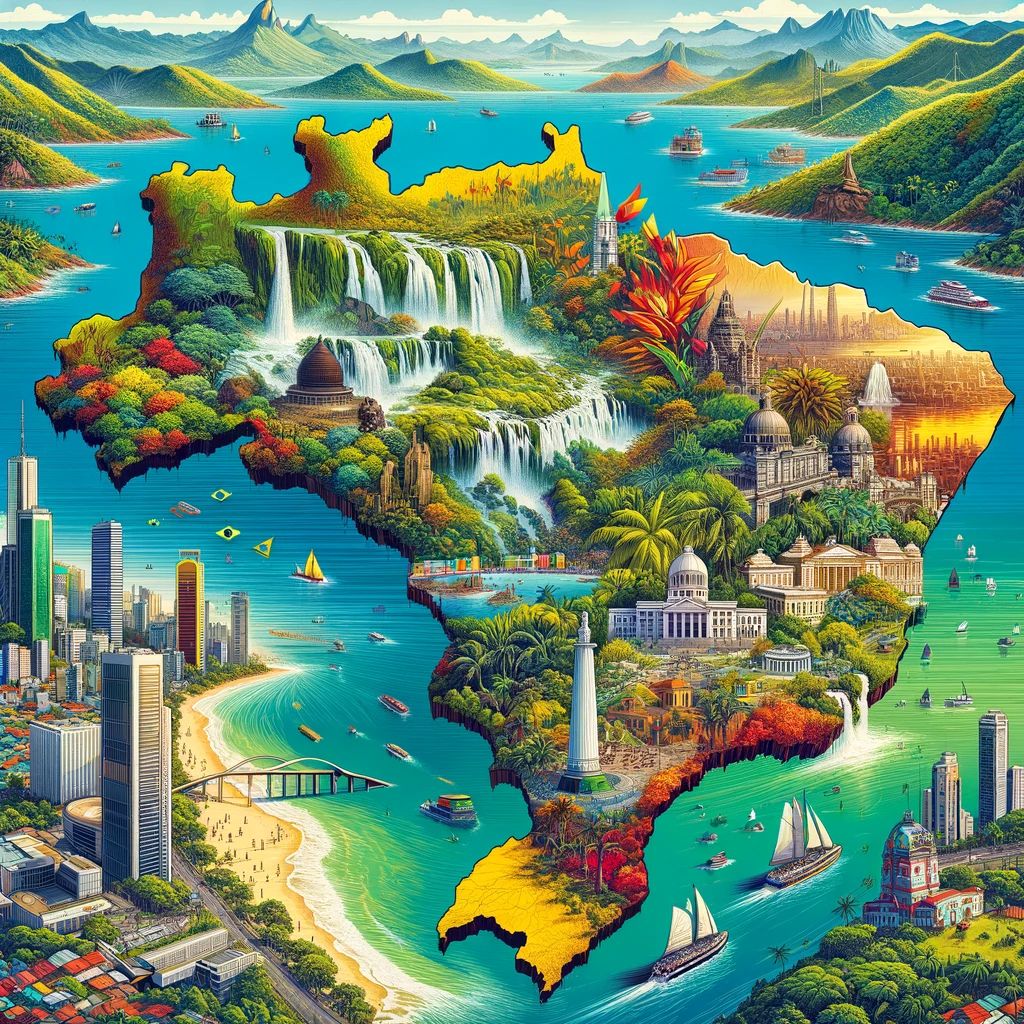I made a list of facts about brazilian ecommerce and digital business landscape because people planning to explore brazilian and latin american markets often start questioning how it is like down there, is it messy? Is it OK? And politics?
The numbers are easy to find. But where are the real facts?
Yes, one can find in many sources data about Brazil saying that the market is big enough and the local politics chaos is actual normal and expected.
And then the most important facts are usually missing. How to set up a business? How much redtape? Will my tech work there?
So I would like to introduce myself. I am Daniel Bender, an ecommerce professional with more than 15 years of experience and a lot of context of brazilian market.
In this article I will expose the real, important facts regarding brazilian ecommerce landscape and, perhaps, help you decide wether is worth or not investing in South American markets in first place.

Fact #1: Brazilian ecommerce is competitive
The first fact to know is that in Brazil most market niches are very competitive, so who is thinking about investing should bring a big pile of cash to burn or a great innovation for the market. Be a great product, a cool brand or something that people already crave for.
But don ´t let that scare you. There are great opportunities for special, technological or luxury products that buyers are probably already used to. In the other hand, there is always space for cheap inexpensive products.
Brazilian consumers are also used to foreign brands and sometimes regard it as superior in quality than local brands. There is not an usual prejudice against imported brands, as long as there is some sort of local presence.
Fact #2: Brazilians enjoy foreign brands
The second fact to notice is that brazilians actually miss a lot of products and services offered abroad and are sometimes very likely to pay a much higher price than europeans and americans. Just as an example, iphones and macbooks more often than not cost two or three times more in brazil than in united states due to different tax structure.
And it still sells because the products are great, the brand is loved and recognized, there is great local support and só on.
Fact #3: there is a viable logistics structure
The third fact to know is that there is already a viable logistics structure. It may not be the best, but it gets the job done.
As an example, an express delivery, departing from São Paulo can reach most of the buyers in 2 to 3 days.
There are indeed some hard to reach places that demand several days of travel in dedicated boats, but they are not that important and it is not uncommon for brazilians stores to ask for special, higher than normal, freight prices to discourage buyers from these places.
Fact #4: there is an established ecommerce ecosystem
The fourth fact to know is there is a viable, large ecommerce and digital ecossistem already in place. Most big international ecomm technology have already been tropicalized.
So most local freight operators and payment methods are available for shopify, magento or woocomerce users. It is also easy to find people capable of using these technologies, most of them can communicate in English and sometimes other languages.
In the other hand, as a developing country with some inflation, it is normal to occur eventual currency devaluations. So sometimes the foreign investment decreases in value while actually being very profitable.
So a foreign investor should expect ups and downs.
Fact #5: there is normal bureaucracy
The fifth fact is that brazil has its own bogus bureaucry and red tape as any other country usually does. Sometimes it may seem too hard to do business, but in the other hand it means that only the most organized and well planned players succeed.
It may seem overwhelming to actually be prepared to a new labor law, a different approach to taxes and a legal system unfamiliar to most people. But remember that we are talking about a different country, with different law system. So that should be actually expected.
The good news is that most of bureacracy has been digitalized, and many things can be done online with some local help. And also that unlike United States and Europe, most of the laws and redtape are very similar in all states.
Conclusion
To summarize it all, I must repeat that Brazil is a different market in a continental sized country, therefore it presents natural challenges to anyone trying to explore it.
Just by doing a good research and actually reading this article is a clear step in the right direction. Feel free to reach me out if you want more insights regarding brazilian and south american markets.
